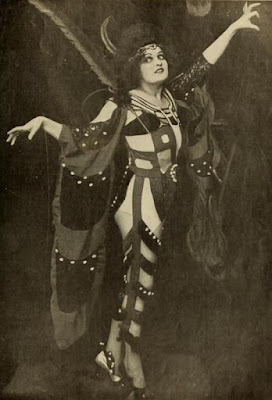 |
| source |
Juliette was born in England to Jewish parents in 1912. Her father was from Turkey, and her mother was Egyptian. Her family was quite wealthy, and her early life included private schools and chauffeurs, but Juliette would grow up to turn her back on her privileged upbringing. How's that for a proper Bohemian beginning in life?
 |
| source |
(Note: usage of the term 'Gypsies' is controversial, but I use it here because it is what Juliette used.)
Juliette's wanderlust led her to many countries: among them were France, Spain, Turkey, Tunisia, Israel, Greece, and Mexico. She always preferred to travel by sea, managing to bring various animal companions with her, including goats, owls, and her beloved Afghan hounds. She lived simply--sometimes camping happily in ruined cottages and caves--and always planted a garden wherever she journeyed. She would eventually bring her children along, and with the knowledge gained through her travels, raised them to be natural and hardy. She made many friends on the way, including fellow bohemians, Helen and Scott Nearing, and became accepted as a family member among Gypsies, Berbers, and Arabs.
Juliette was renown for her knowledge and healing skills, and wrote many books on herbal medicine--recording for posterity the fast-disappearing ancient lore. She also pioneered the field of veterinary herbalism, writing some of the first books on natural care for dogs, cats, horses, goats, and other creatures. Her books are revered by all modern herbalists.
Like most free spirits, she also loved poetry, and published several volumes of her verse, as well as at least two novels. I haven't gotten my hands on any of these, as they are collector's items, so can't comment on them specifically. However, her herb books and her fascinating travelogues have been re-published thanks to Ash Tree Publishing. They've taken old, out-of-print, and hard to find volumes and made them accessible today for curious and thoughtful readers. Juliette wrote in an accessible, conversational style that makes you feel you are sitting with her in the garden sharing a cup of tea. I heartily recommend them.
 |
| source |
When listening to Juliette speak, I'm often reminded of the wise voice of another revered Bohemian elder, Tasha Tudor. I don't know if these two expert plantswomen ever met, although they were close in age, and Juliette traveled to New England when Tudor was still alive. It amuses me to think what these two fiercely independent, creative, and nature-revering women--both Titanesses in my imagination--would talk about, given the opportunity.
After living happily on the Greek island of Kythira near Crete (the rustic abode depicted in the documentary) Juliette moved to Switzerland, where she passed away in 2009 at the age of ninety-six. She had lived an unusually full, free, and colorful life--one that is hard to imagine living today. Juliette de Baïracli Levy continues to inspire me, teach me, and encourage me to blaze my own unconventional path. She is a favorite muse in my own private circle of elders. Is she one of yours, too?
A lovely memorial by another great-souled Bohemian can be found at aliciabaylaurel.com.



